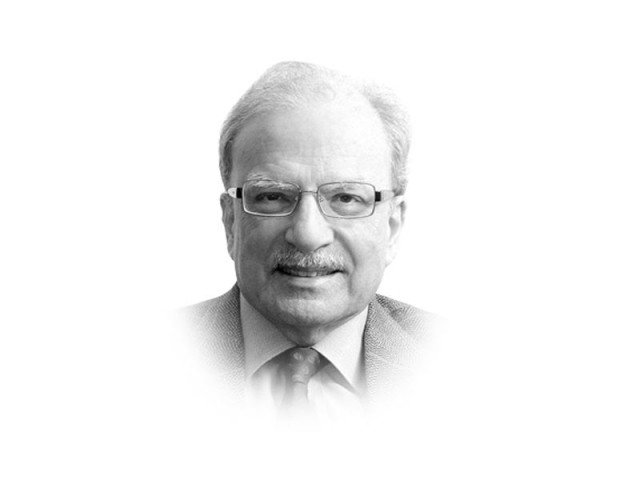The Arab Spring returns to Sudan
Sudan has to find a way for accommodating within the political system a number of competing interests

The writer is a former caretaker finance minister and served as vice-president of the World Bank
The al Bashir government initially flirted with what came to be called the “political Islam”. For the first decade of his rule, he was viewed as a frontman for a powerful Islamist, the cleric Hassan al Turabi, a Sorbonne-educated ideologue with ideas about embedding Sharia in governance. International jihadists, including Osama bin Laden, flocked to Khartoum to take advantage of developments in Sudan. In 1993, the United States reacted and blacklisted Sudan as an international sponsor of terrorism. Six years later, in 1999, al Bashir disposed of al Turabi to prison. He turned back to the army to help him manage what was a divided and difficult country. According to Alex de Wall, a professor at the Fletcher School of Law and Diplomacy and an expert on Sudan, al Bashir is “like the spider at the center of the web – he could pick up on the smallest tremor, then deftly use his personalised political skills to manage the politics of the army”.
In 1999, Sudan found large deposits of oil but these were mostly in the south of the country which had practically no say in governance. Living standards gradually rose in what was one of the poorest countries in the African continent. New roads were built and remote villages were provided with clean drinking water and electricity. But the boom lasted for only half a dozen years. The south as well as the Darfur region in the west rebelled and president al Bashir responded ruthlessly with the help of militias drawn from the north. He was accused by the International Criminal Court of genocide. He was the first sitting head of state to be targeted by the Hague-based court. Pressured to hold a referendum to determine the people’s will, the southerners voted to secede and create a state of their own – South Sudan. Three-fourths of the oil reserves were in the south and with the control on those gone and revenues drying up, Sudan’s economy weakened badly and by the end of 2018 it was in free fall. The rate of inflation went up to 72 per cent. The urban middle class was dismayed to see their living standards collapse and revolted. The ever-loyal military withdrew its support. The spider in the web was thus overwhelmed.
There were differences in the way the situation developed in Algeria and Sudan. In the former, the agitation that brought the president down was in the style of the 2011 Arab Spring. It was the youths’ activism that was the main cause. In Sudan, it was the middle class that had once supported the governing establishment that withdrew its support. In doing so, it came equipped with an institution that would continue to function even after its immediate aim of removing the president was realised. Representing the principal protest group was the Sudanese Professionals Association which brought together lawyers, doctors, economists and managers and owners of small businesses, even those in the civil service. When the president called in the military to suppress the movement, it acted with restraint. It was an indication that the rebels also had the support of some in the armed forces. Finally, the military ousted him ending his 30-year rule. The president was placed in custody, the government was dissolved and the Constitution was suspended. The Professional Association was not impressed with the moves. “What has been just stated is, for us, a coup and is not acceptable,” said Sara Abdelgalil, the spokeswoman for the Professionals. “Our request for a civilian transitional government has been ignored.”
Those who had forced the ouster of al Bashir were not quite done. In spite of the curfew ordered by the military, the protesters refused to leave the place they had occupied outside the army quarters. The military acted again, and the interim leader Lt Genawad Mohammed Ahmed bin Auf was replaced by Lt Gen Abdel Fattah al Burhan Abdelrahman. At the same time, military leaders announced that they would not extradite al Bashir for trial, and that he would be put on trial in Sudan – a decision that drew widespread condemnation from international human rights advocates.
As is the case with several other Muslim nations, Sudan has to find a way for accommodating within the political system a number of competing interests. These include the military and the professional classes, the youth and those who stand for the incorporation of Islam in the country’s make-up. The numbers are with the youth and the middle class. In most Muslim countries the young – those below the age of 30 years – make up some two-thirds of the populations. The distressed and the disappointed have learnt to use the street and social media to put pressure on the governing classes. That said, those who wish to push out the establishment don’t have the means to manage the transition. That is what did not complete the Arab Spring of 2011 and that is likely to happen once again in places such as Algeria and Sudan. As has been demonstrated three times in Pakistan – by way of elections in 2008, 2013, and 2018 – liberal democracy is the only way to transit from limited to popular rule.
Published in The Express Tribune, April 22nd, 2019.
Like Opinion & Editorial on Facebook, follow @ETOpEd on Twitter to receive all updates on all our daily pieces.















COMMENTS
Comments are moderated and generally will be posted if they are on-topic and not abusive.
For more information, please see our Comments FAQ